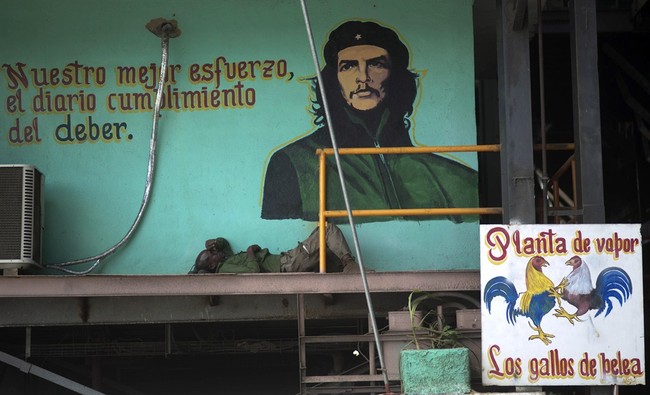
William F. Buckley was said to have joked: “What would happen if the Communists occupied the Sahara? Answer: Nothing—for 50 years. Then, there would be a shortage of sand.”
This is the same thing as in Cuba with basic staples, where the price of sugar is now equivalent to $25 a pound.
“Currently, a pound of sugar in Cuba is sold for 600 pesos, which is a high price in a country where salaries do not suffice to meet basic needs.”
That’s $25 US a pound of sugar.
— wretchardthecat (@wretchardthecat) December 23, 2024
Cuba has been one of the world’s premier sugar producers since there was a Cuba. Sugar was the fuel for the economic engine of the entire region, and sugar has, until recently, been a key export for the communist country.
No longer. Cuba can’t even produce enough sugar for domestic consumption.
The Cuban government acknowledged that it is “shameful” for the island, traditionally one of the leading sugar producers in Latin America, to be forced to import this product.
Despite efforts to revive the sugar industry, the sector continues to face serious challenges, including failures in the last harvest.
During the session of the National Assembly of People’s Power, Cuban Prime Minister Manuel Marrero Cruz recalled when Raúl Castro remarked that “it would be an embarrassment to have to import sugar.” He then stated, “and well, we are experiencing that embarrassment because we are importing sugar.”
He emphasized that the crisis in the sector is such that the country has also stopped exporting sugar, which was a key component of the economy.
Over the years, the crisis in the industry has been severe. During the last harvest season, the failures were evident, resulting in a drop in production that has impacted both the domestic market and exports, a sector that was previously one of the main sources of income for the country. As a consequence, Cuba has ceased exporting sugar and is facing challenges in supplying this essential product in the local market.
Sugar is not a high-technology product and requires next to no skills to produce. But history shows that if there is one thing that communists excel at, it is ruining agriculture production.
Cuba lost its sugar daddy when the Soviet Union fell, and the struggling economy went into a tailspin from which it has never recovered. Many of the best and brightest who could flee came to the United States, and the incentive structures in Cuba are such that even potentially smart and hard-working Cubans aren’t incentivized to make things work well and efficiently.
The sugar industry in Cuba has faced a prolonged crisis due to historical issues such as poor machinery maintenance, fuel shortages, and adverse weather conditions. Despite government efforts to revitalize the sector, production has declined drastically, forcing the country to import sugar to meet domestic demand.
So people get poorer, the scarcity of goods increases, and everybody is immiserated.
There is a bright spot, though. Cuba’s per capita carbon emissions are about 1/8th of those of the United States and have been declining due to the collapse of their economy.
It turns out that if you want to get closer to Net Zero, one of the best ways to do so is become poor and miserable.










